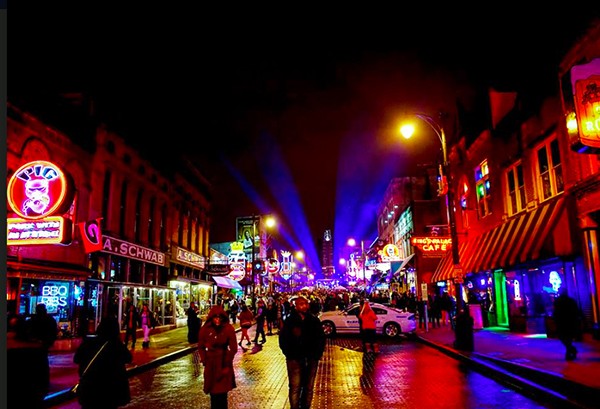Remember when Tennessee banned smoking inside public places? I do. It was 2007. I was working in a restaurant and, relatedly, a smoker. The Non-Smoker Protection Act forced some businesses to choose an identity: Is this a bar that serves food or a restaurant that serves drinks? No longer could a partition between “smoking” and “non-smoking” areas permit establishments to be all things to all people. Restaurants and bars could — and still can — allow smoking inside, but only if they’re age-restricted to 21-plus, all the time.
The bar where I worked had a well-crafted 21-and-up sort of vibe, so it wasn’t impacted much. But as a patron, I simply adjusted. We chose smoking bars when we went out. Or we dutifully huddled outside when cravings called, careful to stand a few feet from the door. I never viewed the ban as an affront to liberty — the effects of secondhand smoke had been long known. It was just annoying. That meant the law was doing its job. As far as I can tell, the recession probably killed more restaurants than smoking bans did.
 Beale Street Merchants Association
Beale Street Merchants Association
Beale Street
Culture changed. The Camel representatives stopped showing up with free packs of cigarettes for anyone with a valid ID — disappointing in the moment, but an unconscionable practice in hindsight. The ghosts of thousands of cigarettes escaped from the walls of newly smoke-free restaurants. The air got cleaner, and dining out became a more pleasant experience. I had expected the choice to go smoke-free would doom the Young Avenue Deli, but I learned their famous cheese fries were better without a fine layer of ash on top. As it turns out, smell is an essential complement to taste!
As a now-former smoker, I kinda like not smelling like other people’s cigarettes. And more than a decade later, it’s much harder to find a restaurant or bar that allows smoking indoors. Unless you’re on Beale Street.
It feels so weird and anachronistic to walk into a Beale Street bar before a basketball game and see ashtrays on all the tables. Like, are they for hot wing bones? It’s 2019. Instead of carding families at the door when they try to pop in at 11 a.m. on a Saturday for some pregame nachos, wouldn’t it be easier to send smokers to the patio? They know the drill by now. More than 80 percent of the U.S. population lives in an area where smoking is banned in public places. Our visitors won’t be offended. Lunch business might improve, too. Long shot here, but maybe folks would be more inclined to stay inside on those summer stampede nights if the air’s not as toxic.
I don’t have access to this kind of data, but I am not sure “tourists who see a smoky bar and say, ‘Heck yeah, this is my kind of place'” is a niche worth pursuing anymore. Not at the expense of the health and comfort of the 86 percent of the population (according to the CDC) that doesn’t smoke.
Consider the musicians in the bands, who need to use their voices and breath to create the sounds that tourists come to hear. Think of the employees who can’t afford to take sick time because they work for tips. Sure, plenty of those people smoke. But an hourly break and an eight-hour shift of continuous smoke inhalation are not the same.
For a destination that’s relentlessly promoted by state and local tourism boards, shouldn’t the atmosphere be a little more welcoming? Oddly, the state law preempts cities from enacting their own regulations on smoking in public. Before my smoking friends approach with torches and pitchforks, our beloved dives are safe. But as Memphis and Nashville are on a short list of cities across the entire country where smoking in bars is still a thing, perhaps the law is worth revisiting to exclude entertainment districts like Beale and Broadway from the exemption. Or, you know, bars could get with the times.
Jen Clarke is a digital marketing specialist and an unabashed Memphian.